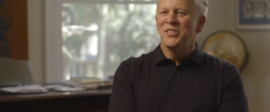Vocation in the Context of Community (Acts 13:1-3)
Bible Commentary / Produced by TOW Project.jpg)
Acts 13:1-3 introduces us to a set of practices in the church at Antioch. This community is remarkable both for its ethnic diversity and its commitment to practical witness of the kingdom of God.[16] We have seen already how Luke shows that work—especially the use of power and resources—functions as a form of witness.[17] We have seen in Acts 6:1-7 that this applies equally to vocations we more naturally associate with ministry (such as missionary) and those we are more likely to call “work” (such as hospitality.) All vocations have the potential to serve and witness the kingdom, especially when employed in the pursuit of justice and righteousness.
Acts 13:1-3 shows the Christian community trying to discern how the Spirit is leading them toward witness. Paul and Barnabas are singled out to work as traveling evangelists and healers. What is remarkable is that this discernment is accomplished communally. The Christian community, rather than the individual, is best able to discern the vocations of its individual members. This could mean that today’s Christian communities should participate alongside families and young people as they seek answers for questions such as, “What do you want to do when you grow up?” “What will you do after graduation?” or “To what is God calling you?” This would require Christian communities to develop a much greater expertise in vocational discernment than is presently common. It would also require them to take a much more serious interest in work that serves the world beyond the structures of the church. Merely asserting authority over young people’s work lives is not enough. Young people will pay attention only if the Christian community can help them do a fuller job of discernment than they can do by other means.
Doing this well would be a double form of witness. First, young people from all religious traditions—and none—struggle deeply with the burden of choosing or finding work. Imagine if the Christian community could genuinely help reduce the burden and improve the outcomes. Second, the great majority of Christians work outside the structures of the church. Imagine if all of us engaged in our work as a means of Christian service to the world, improving the lives of the billions of people we work alongside and on behalf of. How much more visible would that make Christ in the world?
Community discernment of vocation continues throughout Acts, with Paul taking many missionary partners from the community—Barnabas, Timothy, Silas, and Priscilla, to name but a few. Second, testifying again to Luke’s realism, we see that this shared vocation to witness does not eliminate the relational tension brought about by human sinfulness. Paul and Barnabas have such a serious dispute over the inclusion of John Mark (who had deserted the team on a previous engagement), that they go separate ways (Acts 15:36-40).









